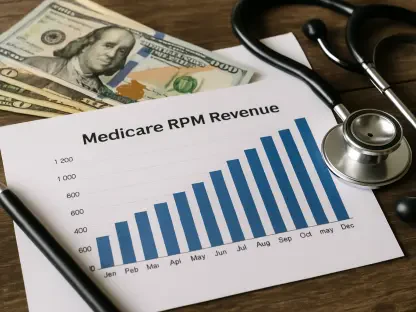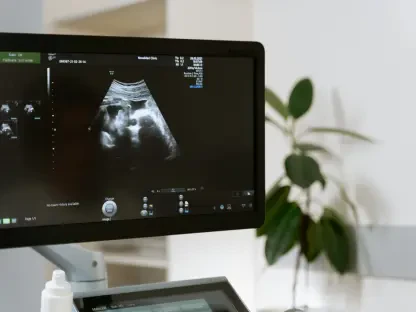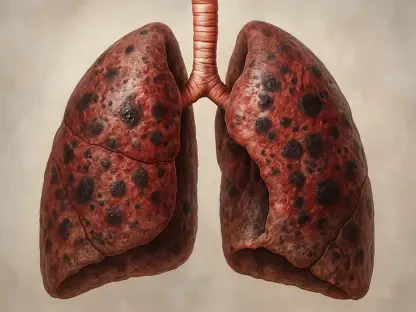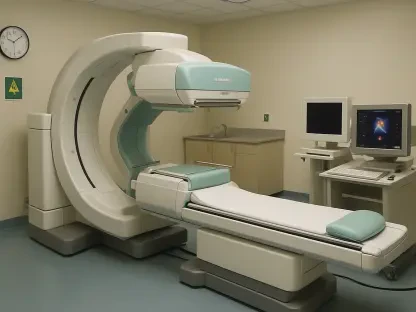In the ongoing quest to address the healthcare disparity faced by farmworkers in rural areas, mobile health units are emerging as a practical solution. These units have the potential to break down the barriers preventing this vital workforce from accessing essential medical and mental health services. Senator Josh Becker recently announced Aisha Baro’s proposal as the winner of the “There Ought to be a Law” competition. This proposal, introduced as SB 338, aims to introduce mobile health pilot programs in rural California, directly providing healthcare to farmworkers who face significant obstacles due to their long working hours, low wages, and remote locations. This initiative seeks to ensure that these workers, who form the backbone of California’s agricultural economy, can receive necessary medical attention without the struggle of travel or disrupting their work schedules.
The Healthcare Needs of Rural Farmworkers
Farmworkers in rural areas often face a higher prevalence of preventable conditions due to delayed or forgone medical treatment. The nature of their work—long hours, physically demanding tasks, and exposure to harsh environments—contributes to a range of health issues, including respiratory conditions, musculoskeletal disorders, and skin diseases. Additionally, mental health problems such as anxiety and depression are not uncommon, exacerbated by the stresses of job insecurity and limited social support networks.
Access to healthcare is further complicated by factors such as linguistic and cultural barriers, lack of transportation, and financial constraints. Many farmworkers are hesitant to take time off work for medical appointments, fearing loss of income or job security. In this context, mobile health units present an innovative solution by bringing healthcare services directly to the sites where these workers are employed, thereby eliminating the need for travel and minimizing disruption to their work.
The SB 338 Pilot Program
Senator Josh Becker’s introduction of SB 338 represents a significant step towards addressing the pressing healthcare needs of farmworkers. The bill proposes the implementation of a mobile health pilot program in two rural counties, selected based on the farmworker population and healthcare requirements. This program will be overseen by the Department of Health Care Services (DHCS), targeting the delivery of a comprehensive range of services, including virtual medical consultations, mental health counseling, and health education.
The pilot program builds on the success of the Farmworkers Equity Bus pilot project from three years ago, which managed to serve around 120 people weekly. By expanding this model, SB 338 aims to provide broader coverage, ensuring that more farmworkers have access to timely and adequate medical care. The use of mobile units allows for flexible, on-site healthcare delivery, which is crucial for a population that otherwise experiences significant barriers to accessing traditional healthcare services.
Collaborative Efforts and Support
The proposal for SB 338 has garnered widespread support from several key stakeholders, reflecting a broader recognition of the critical role farmworkers play and the urgent need to address their healthcare challenges. Life Science Cares, led by Aisha Baro, has been particularly instrumental in championing this initiative. Her efforts are complemented by the enthusiastic backing of local organizations such as California Life Sciences and ALAS, which have long advocated for improved health equity for farmworkers.
Mike Guerra of California Life Sciences and Belinda Hernandez Arriaga of ALAS have expressed strong support for this innovative approach, emphasizing the potential impact on farmworker health outcomes. Their endorsement highlights the collaborative nature of this effort, with various organizations coming together to address a common goal. This collective support not only underscores the feasibility of the pilot program but also paves the way for its successful implementation and potential expansion.
Towards Health Equity and Improved Service Delivery
The introduction of mobile health units as part of SB 338 marks a pivotal moment in the pursuit of health equity for farmworkers in rural California. By prioritizing the delivery of on-site healthcare, the bill aims to mitigate the factors that contribute to delayed or missed treatments among farmworkers. This approach recognizes the unique challenges faced by this population and seeks to provide a practical solution that addresses their specific needs.
Significantly, mobile health units can offer a range of services tailored to the diverse health requirements of farmworkers. From routine check-ups and vaccinations to specialized care and mental health support, these units can deliver a comprehensive suite of medical services. The flexibility of mobile units also enables healthcare providers to respond quickly to emerging health concerns and adapt to the changing needs of the farmworker population.
Future Considerations and Actionable Steps
Senator Josh Becker’s introduction of SB 338 is a significant step addressing the urgent healthcare needs of farmworkers. The bill proposes creating a mobile health pilot program in two rural counties, chosen based on their farmworker population and healthcare needs. This program will be overseen by the Department of Health Care Services (DHCS) and aims to deliver comprehensive services, including virtual medical consultations, mental health counseling, and health education.
The pilot builds on the successful Farmworkers Equity Bus project from three years ago, which served about 120 people weekly. By expanding this model, SB 338 seeks to ensure that more farmworkers receive timely and adequate medical care. The use of mobile units facilitates flexible, on-site healthcare delivery, crucial for a population that faces significant barriers to accessing traditional healthcare services. Overall, this initiative aims to bridge the gap in healthcare access for farmworkers and address their specific medical needs effectively.









